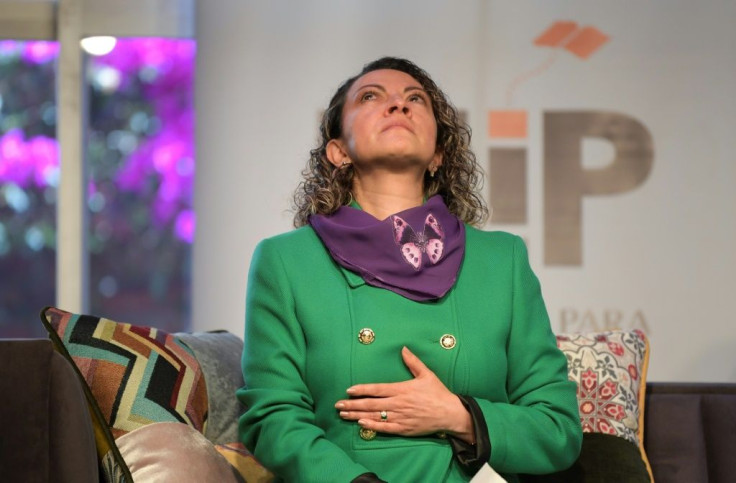Tortured Reporter Lauds 'Historic' Court Ruling Against Colombia
Journalist Jineth Bedoya, who was kidnapped, raped and tortured by paramilitaries 21 years ago, on Tuesday applauded the "historic" decision by a regional rights court to hold the Colombian state responsible for her violent assault.
The Inter-American Court of Human Rights ruled Monday that the acts against Bedoya "could not have been carried out without the consent and collaboration of the (Colombian) State, or at least with its tolerance."
Bedoya, now 47, was working for the El Espectador newspaper investigating a weapons smuggling ring when she was abducted and attacked by far-right militia members in 2000.
"It's a historic sentence. The court's decisions as reparations... are public policy, but also jurisprudence for the entire hemisphere, not just Colombia," Bedoya, fighting back tears, told reporters in the capital Bogota.
"And that is where the triumph is of all these years seeking justice."
The court is an autonomous part of the Organization of American States (OAS) and its decisions are definitive and unappealable.
Bedoya was seized by a paramilitary group from outside a Bogota prison and then raped and tortured for 16 hours before being abandoned on a roadside.
She had been investigating an arms trafficking network operating out of La Modelo prison and claimed the state, including an "influential" police chief, was complicit in her abduction.

The paramilitaries, some of whom have already been convicted for the crimes committed against Bedoya, were right-wing militias that fought left-wing guerrillas during Colombia's bloody 60-year conflict. They were dissolved in 2006.
The Colombian state was guilty of "failing to investigate the threats that had been received" by Bedoya, according to a statement released by the judicial wing of the OAS, headquartered in Costa Rica.
The failure to investigate violated Bedoya's "rights to judicial guarantees, judicial protection and equality before the law," the court ruled.
President Ivan Duque said Colombia "fully accepts the decision" and that it should be used "to prevent anything like this from happening again."
Bedoya criticized the last four governments for giving her nothing more than "pats on the back."
And she blasted the "silence" and lack of solidarity of female government officials, including Vice-President Martha Lucia Ramirez.
The Colombian state had apologized to the journalist before the same court in March, when it also ordered the government to ensure the safety of Bedoya and her mother, who had both been victims of earlier threats and an attack that went uninvestigated.
The court ordered Colombia to "punish those remaining responsible for the acts of violence," and called for other measures including training for security forces focused on violence against women.
"Perhaps I will never be able to see behind bars the general who ordered my kidnapping, nor the men who supported him," said Bedoya. "But this will remain in the conscience of the state."
© Copyright AFP {{Year}}. All rights reserved.




















